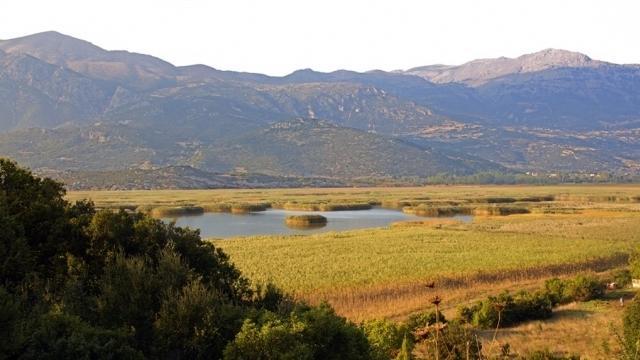
Lake Stymphalos, Arkadia, Greece. Photo: Peter Londey
A seminar with Professor Jay Winter
As modern ideas about the environment evolved, some scholars became enthusiastic about citing Greek philosophers of the 5th and 4th centuries BCE such as Plato, Aristotle and Theophrastos to support their views. However, these early philosophers did not write directly about the environment as we know it, and the use of selective quotations does not provide convincing evidence of their views. This paper provides an overview of my PhD thesis, which analyses the two extant works that Theophrastos of Eresos (c. 371 – c. 287 BCE), Aristotle’s student and successor, wrote about plants: Enquiry into plants and Explanations of plants. I examine what these works reveal about Theophrastos’ conception of the environment, especially his ideas about the relationship between the essential nature of plants (their physis, or ousia), the characteristics of the places where they live, and the agency of plants in these places. I also discuss how Theophrastos represents wild and ‘tamed’ plants, the gendering of the differences between them, his views on environmental determinism, and the relationships plants have with humans. Although Theophrastos had a sophisticated grasp of the relationship of living things to their environmental context, his views need to be considered in the context of his time, not ours.
Rod is a PhD student in the School of History at ANU. Rod obtained a B.Sc.(Hons) majoring in botany and zoology from Melbourne University in the late 1970s, and spent the bulk of his career working in Australian museums and botanic gardens as an organiser of public programs and events, and as an education officer. Through his involvement with these organisations he developed an interest in the history of the science of botany and the ways in which plants from many parts of the world were used in landscape and garden design. Following his ‘retirement’ Rod obtained a B.A.(Hons) majoring in ancient history from the Australian National University.
Location
Speakers
- Mr.Rodney Harvey (Australian National University)
Event Series
Contact
- David Romney Smith